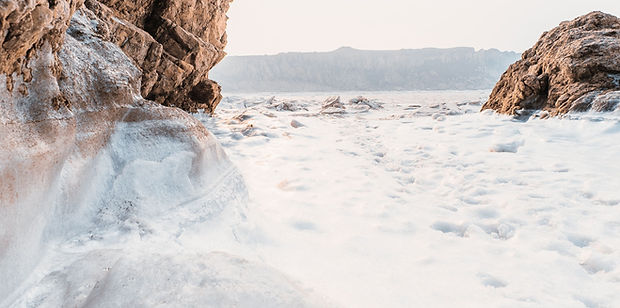

Geography
We believe that Geography is central to developing a global perspective in our children. Our intent is to give children the knowledge about places and environments but also with the skills necessary to understand their own community and the wider world. The knowledge children will gain through our Geography curriculum has been carefully specified, ordered coherently and builds over time.
Intent
As children work through our geography curriculum they will know more, understand more about the human and physical world around them. A good geographical understanding relies on firm foundations of knowledge and skills. The skills our curriculum develops, like the knowledge, are specified, ordered coherently and progress over time. This curriculum structure helps pupils to deepen their understanding of geographical processes, fostering curiosity and fascination for the world we live in. Approaching primary geography with a knowledge rich focus means that the knowledge children will be taught has been identified, in each year group, in each unit and in each lesson. As children work through the curriculum they will know more and understand more about their local area, the UK, Europe and the World.
This rigorous approach, covering and going beyond the requirements of the National Curriculum, leaves nothing to chance, building geographical knowledge and understanding in a way that builds on children’s prior knowledge, allowing them to make meaningful connections and gain an understanding of how our world is connected.
We aim to help children develop:
-
A sense of place and space: We want children to develop a love for exploration, discovery, and enquiry about the Earth and its inhabitants.
-
Cultural awareness: Our curriculum is designed to instil respect and understanding of diverse cultures, developing collaboration and empathy among children.
-
Critical thinking and problem solving: We encourage children to evaluate geographical information critically and to apply this understanding to real-world contexts, empowering them to contribute positively to society.
Environmental responsibility: Children learn about sustainability and the impact of human action on the environment, developing a sense of stewardship for the planet.
Implementation
The implementation of our Geography curriculum is characterised by:
-
Comprehensive Curriculum Design: We have created a bespoke Geography curriculum that spirals through knowledge and skills development from Reception to Year 6. The curriculum covers key themes such as physical geography, human geography, map skills, and fieldwork, ensuring progression and depth of understanding.
-
Conceptual understanding is at the heart of our curriculum. Children will learn about key geographical concepts such as place, space, the environment and interconnection. Over time, working through an essential process of elaboration, children will add to their conceptual understanding with many examples of geographical knowledge in context. Children will become more skilled at answering questions such as; what is it like to live in this place? What are the challenges of this environment? How have people changed this landscape over time? Children will gain an understanding of what geographers do, what they look for and what they may say about a place. They will discover explorers such as Ibn Battuta, Roald Amundsen and Captain James Cook. They will look at the migration of both animals and people, studying the impact migration and colonialism had on places such as Australia and New Zealand.
-
Spatial Sense Each year our geography curriculum begins with a ‘Spatial Sense’ unit that explicitly teaches geographical skills such as locating places on a map, positioning items on a map, using symbols in a key, interpreting scale, reading climate graphs, identifying locations using co-ordinates, interpreting population data, identifying elevation on relief maps and more. The spatial sense units for each year group are positioned at the beginning of the year to explicitly teach skills which will then be used in context throughout the rest of the year as children apply those skills to learn more about people, places and the environment.
-
British Geography Every year children will study at least one unit of British geography. As with the rest of the geography curriculum, children’s knowledge and understanding of British geography builds incrementally from year to year.
-
European Geography In years two, three and four, children will study units of European geography that introduce regions of Europe, climate, trade, industry, landmarks, physical features and contrasting environments. Children will interpret a range of geographical information including maps, diagrams and climate graphs. Comparisons will be made between places in Europe and the local area.
-
World Geography Alongside their study of the UK and Europe, children will extend their knowledge beyond these regions to study world geography. When studying world geography, children will focus on places such as North and South America, Asia, Africa, Australia, New Zealand and the South Pacific Islands.
-
Fieldwork: We prioritise fieldwork opportunities, such as local area studies or environmental projects, enabling children to apply classroom knowledge in practical settings. We also organise trips to various geographical sites, both locally and further afield such as Derbyshire, to enrich children’s learning experiences.
-
Assessment: We use a variety of assessment methods, including formative and summative assessments, geographic enquiries, and project work, monitor progress and understanding.
Impact
The impact of our Geography curriculum is evident in:
-
Pupil Engagement and Achievement: children are enthusiastic about their in geographical studies.
-
Personal Development, Cultural and Social Awareness: Children show awareness of global issues and cultural diversity. They can articulate their understanding of climate change, migration, and cultural differences, demonstrating empathy and ethical reasoning.
-
Environmental Awareness: children engage in sustainability initiatives, such as efforts to ‘cut your carbon’ led by children in school and environmental campaigns, showcasing their responsibility towards their community and the environment.




